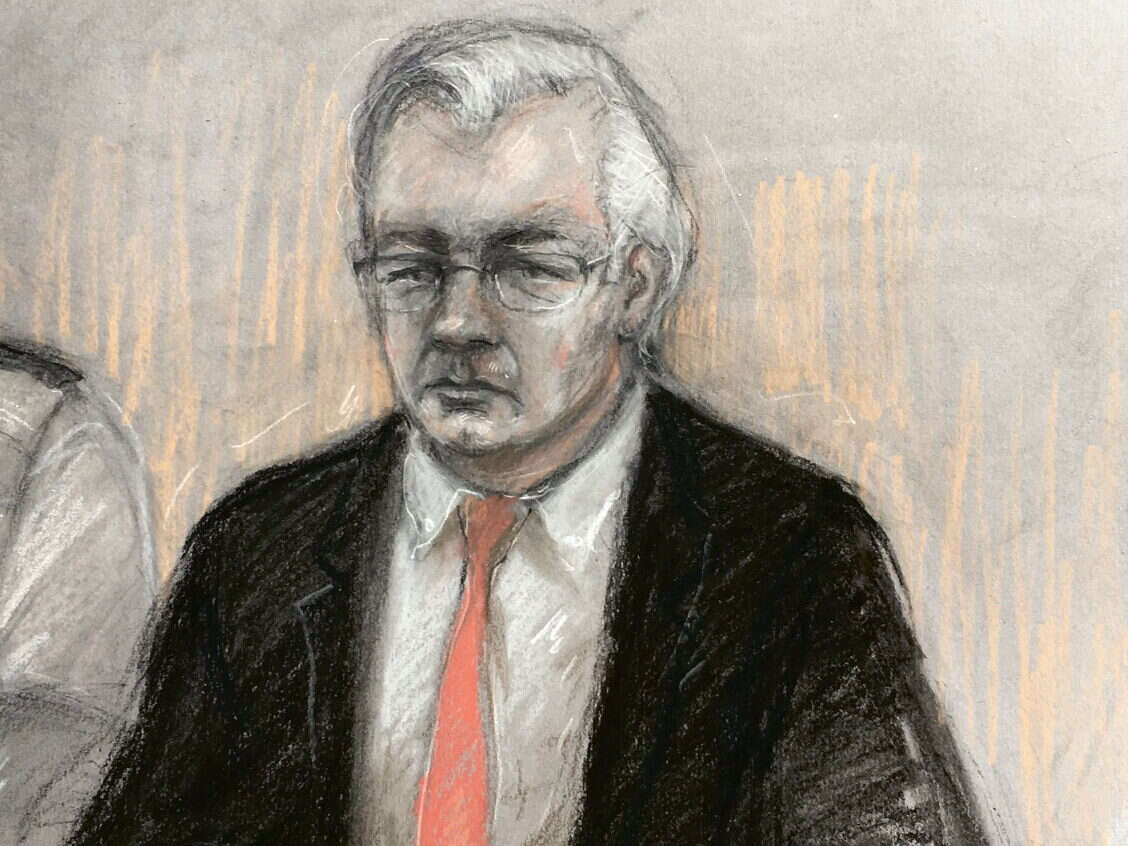
Hundreds of thousands of leaked documents published by Wikileaks caused no harm to US informants, Julian Assange’s extradition hearing has been told.
The organisation’s founder, 49, is wanted in the US to face 18 charges including plotting to hack computers and breaching the country’s Espionage Act.
Assange is accused of conspiring with US army intelligence analyst Chelsea Manning to crack a scrambled password to a classified US Department of Defence computer and putting sources’ lives at risk by publishing unredacted files.
Investigative journalist John Goetz, who worked with Wikileaks while at news website Der Spiegel in Germany, said on Wednesday: “I don’t know of any case of anyone coming to harm from the publication of the diplomatic cables.”
He added: “This question of harm was the central issue in the Chelsea Manning trial and, as far as I know, I don’t know of any case of any specific incident where harm has been shown from the release of the documents.”
Giving evidence by video link at the Old Bailey on Wednesday, Goetz said he worked closely with Assange and other media partners on the Afghan war documents leak in 2010.
He said Assange was “very concerned” with the technical aspect of trying to find those named in documents in order to protect them.
“At that time, I remember being very, very irritated by the constant, unending reminders by Assange that we needed to be secure, that we needed to encrypt things, that we needed to use encrypted chats,” he said.
“It was the first time I had seen, used or touched a cryptophone.
“The amount of precautions around the safety of the material were enormous.
“I thought it was paranoid and crazy but it later became standard journalistic practice, but at the time it was very new to me.”
Goetz said Assange wanted to find a technical solution to find those named in documents “so that we could redact them, so we could take measures to make sure they weren’t published and that no one would be harmed”.
The court heard hundreds of thousands of redacted documents were published in 2010 and 2011.
“It was a very rigorous process,” Goetz said. “As far as I know, no name came out of that period.”
Wikileaks published 251,000 secret diplomatic cables in September 2011 in a move condemned by former media partners for exposing those named to risk, the court heard.
But Goetz said the publication came after the material was made available on the Cryptome leak website after the release of a Guardian book about Wikileaks, which contained a password.
He said in a statement: “At no time did I come to consider that Assange was responsible for knowingly publishing material that could harm other persons but that there were unpredicted actions by others that resulted in publication against his wishes.”
James Lewis QC, for the US Government, suggested an earlier release of unredacted documents had included the names of sources.
“Some of those cables were unredacted and had the words ‘strictly protect’ on them,” he said.
Lewis later outlined allegations US sources from around the world who were named in Wikileaks publications were subjected to harassment, forced to flee their homes or disappeared.
The exchange with Pentagon Papers whistleblower Daniel Ellsberg, 89, was interrupted by an outburst from Assange in the dock before he was silenced by the judge, Vanessa Baraitser.
Ellsberg, who was prosecuted under the Espionage Act in the US in 1971 over the leaking of top secret documents relating to the Vietnam war, told the court he did not believe Assange’s actions had led to anyone being harmed.
Lewis said: “What about the disappeared people in Afghanistan, Iraq and Syria?
“Common sense tells you that they have been murdered or forced to flee under another identity.
“Are you saying the people who have disappeared have not suffered harm?”
Ellsberg said: “It does not seem to me at all obvious that the small number of people among all of those murdered in those countries can be attributed to the Wikileaks disclosures.”
The defence witness earlier said Assange could not get a fair trial in the US, explaining he was not allowed to give the reasons behind his actions at his own trial, which eventually ended because of the US Government’s misconduct.
He said: “I didn’t get a fair trial despite a very intelligent and conscientious judge, no-one since me has had a fair trial under those charges, Julian Assange cannot get a fair trial for what he has done under these charges in the United States.”
The hearing continues on Thursday.
Picture: PA Wire/Elizabeth Cook
Email pged@pressgazette.co.uk to point out mistakes, provide story tips or send in a letter for publication on our "Letters Page" blog
